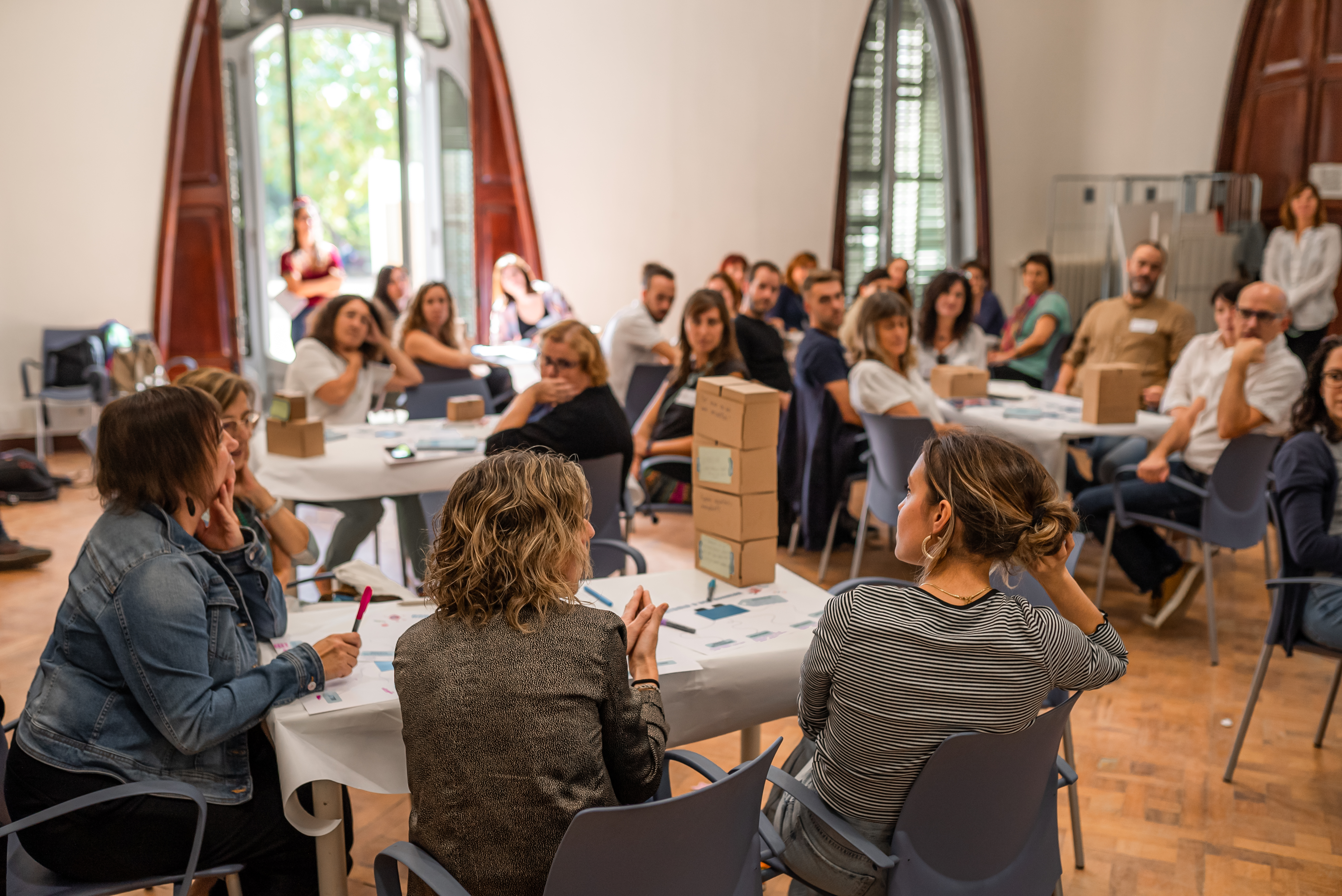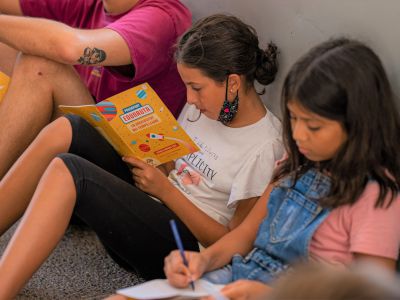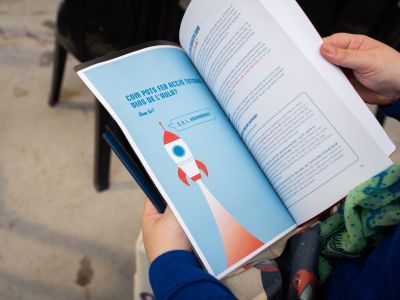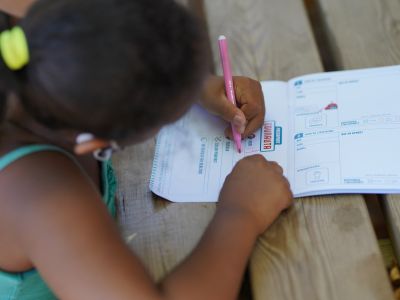Equity at the heart of out-of-school activities: reflections on the Edunauta Passport community meeting
14/12/2022

On 27 October, the Edunauta Passport programme held its 3rd Edunauta Community Meeting in Terrassa, which brought together the individuals in charge of its implementation in towns, neighbourhoods and counties.
This year the meeting focussed on the core topic of the programme: How can the Edunauta Passport serve as an instrument to improve equitable access to leisure and extracurricular education opportunities and what barriers need to be broken down to achieve this?
Equity in access to out-of-school activities: what do we know?
The goal of the Edunauta Passport is to promote access to a broader education with effective participation by children – particularly those in a position of vulnerability – in challenging activities that offer educational potential at the end of the school day.
El curs 21/22 el #PassaportEdunauta, programa per ampliar oportunitats educatives més enllà de l'escola va arribar a:
— Educació360 (@educacio360) October 28, 2022
📌28 territoris de Catalunya
👩🚀🧑🚀11439 infants
🏫168 escoles que l'utilitzen
🚀278 destinacions d'aprenentatges compromeses
🎯1191 activitats
Seguim creixent! pic.twitter.com/RWHFi1fEMW
2 in every 3 children have used the Edunauta Passport to take part in activities in their local area and most stated that this has enabled them to become more familiar with their setting and the local organisations, benefitting from new learning and carrying out activities as a family.
However, what about the 33% of pupils who have not taken part in the Edunauta Passport programme? There are varying reasons as to why children have not used the tool, although the most prominent include those that act as limiting factors and a barrier to access, leading to the loss of an opportunity to benefit from challenging learning options. Children underline that the main limitations include the fact that their families are unable to take part with them, the cost and the distance. This is without mentioning how poorly they perceive the value of what they may discover and learn from these activities.
The spaces for joint reflection in the meeting involved analysing the barriers to access and finding out more about the causes and reasons. This is an essential task in order to address socioeconomic inequalities with a range of strategies and actions that effectively provide the right to extended education that leaves no child behind.
What have we learnt from this meeting?
This meeting enabled us to create a valuable forum to align the work and steer the focus on equity in extracurricular activities from a different perspective. We shared challenges and strategies to seek out solutions at various levels that will enable us to further develop the work being carried out, placing children and their families at the heart of the initiative.
During the meeting a number of actions were considered which may prove relevant to be able to implement measures promoting equity and access, including the following:
- Implementing and expanding on local policy measures to promote equity: these should be centred on developing and strengthening mechanisms to ensure that cost is not a limiting factor to access and participation. Taking into consideration the contexts of each area, interventions could be promoted for reducing the cost of the activities, offering grants and/or charging low-cost social rates to have a positive impact on access.
These measures must also be backed by efforts focussed on allowing greater flexibility in and simplifying the bureaucratic processes to register for activities and process grants through various support mechanisms to enable better understanding and access, particularly on the part of people in a greater position of vulnerability.
Other impactful measures that may be important include efforts to identify cases where children need additional support to access the range of extracurricular activities by implementing measures to provide recommendations and guidance on activities and steps to guarantee that the information reaches all families (communication campaigns, activity search engines for information on existing options, etc.).
- Increasing the number of agents involved to broaden comprehensive support: access and participation involve more than intervention in the educational field; more agents need to become involved to foster a more comprehensive and engaged support effort. Hence, it is necessary to reconsider the educational ecosystem to include more agents who are engaged with children and families in order to increase the number of recommenders and enhance their work in relation to the Edunauta Passport.
Equity is one of the core principles of the Edunauta Passport. Efforts carried out should always be up to date and continually reviewed to allow further actions to be implemented, effectively enabling all children to extensively take part in out-of-school activities without exception.


